Junkyard Gem: 2009 Hyundai Elantra with manual transmission

As recently as the early 1990s, a good-sized percentage of bread-and-butter commutemobiles were still sold in the United States with manual transmissions. In those days, skipping the automatic transmission made a car much cheaper, sometimes as much as 10% cheaper, and three-pedal cars tended to get significantly better fuel economy. Then automatics got cheaper and better; manuals were more often chosen by the small minority of drivers who preferred them. The U.S.-market Hyundai Elantra has had a manual transmission available since the first 1992 models showed up here (you can buy a ’23 Elantra N with a six-speed manual right now), but few 21st-century Elantra shoppers have proven willing to choose their own gears. After quite a lot of searching the car graveyards, I finally managed to find an ordinary 21st-century Elantra with a five-on-the-floor.
This is an Elantra GLS, the cheapest trim level for 2009. The MSRP for this car was just $14,120, or about $20,007 in 2023 dollars.
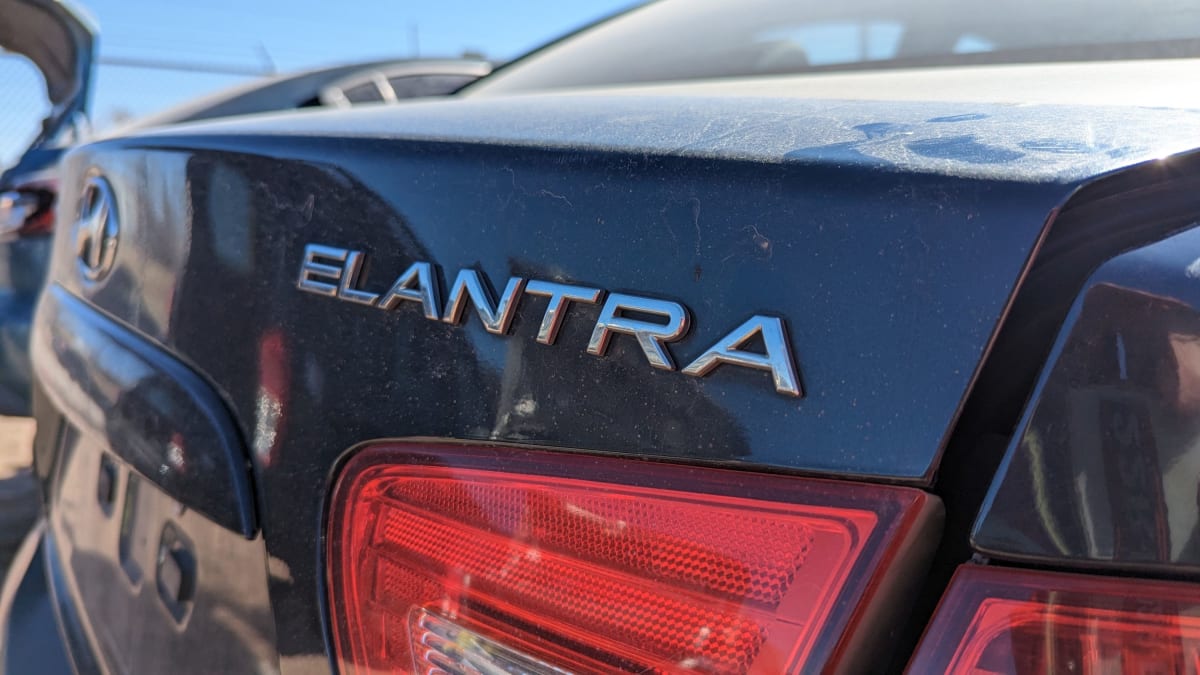
If you wanted an automatic transmission in your 2009 Elantra GLS, the price tag got $1,000 bigger ($1,417 in today’s money).
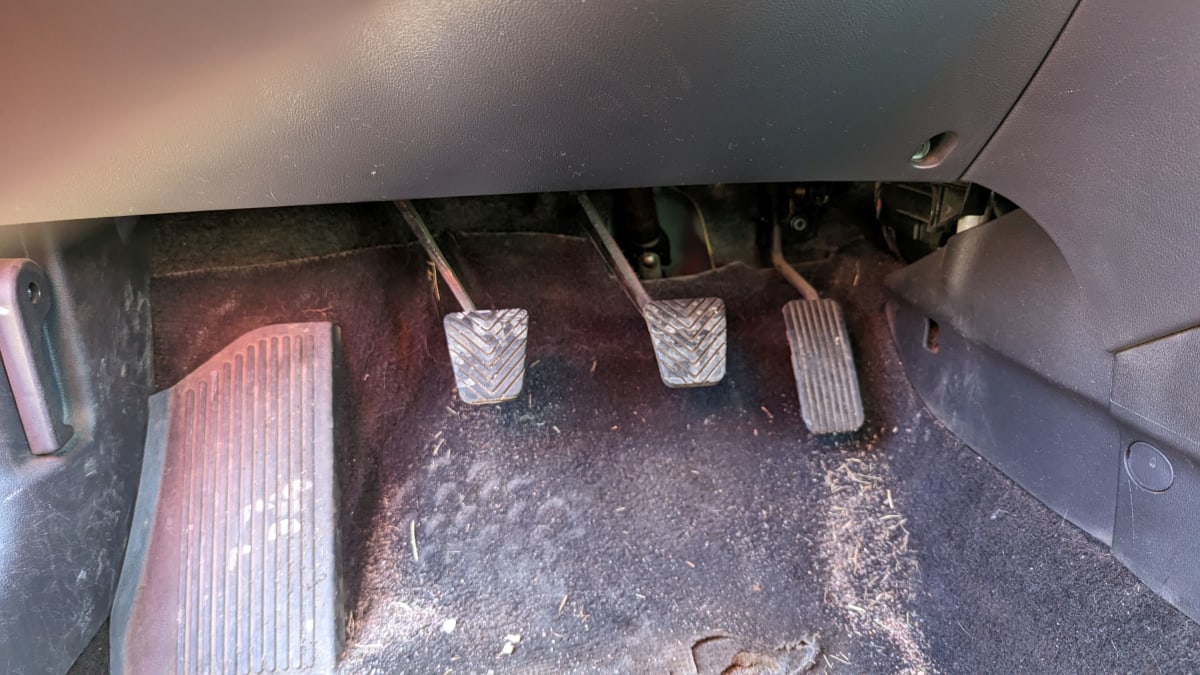
That’s a bit more than a 7% price jump to enjoy two-pedal driving, which nearly all ’09 Elantra buyers were willing to pay.
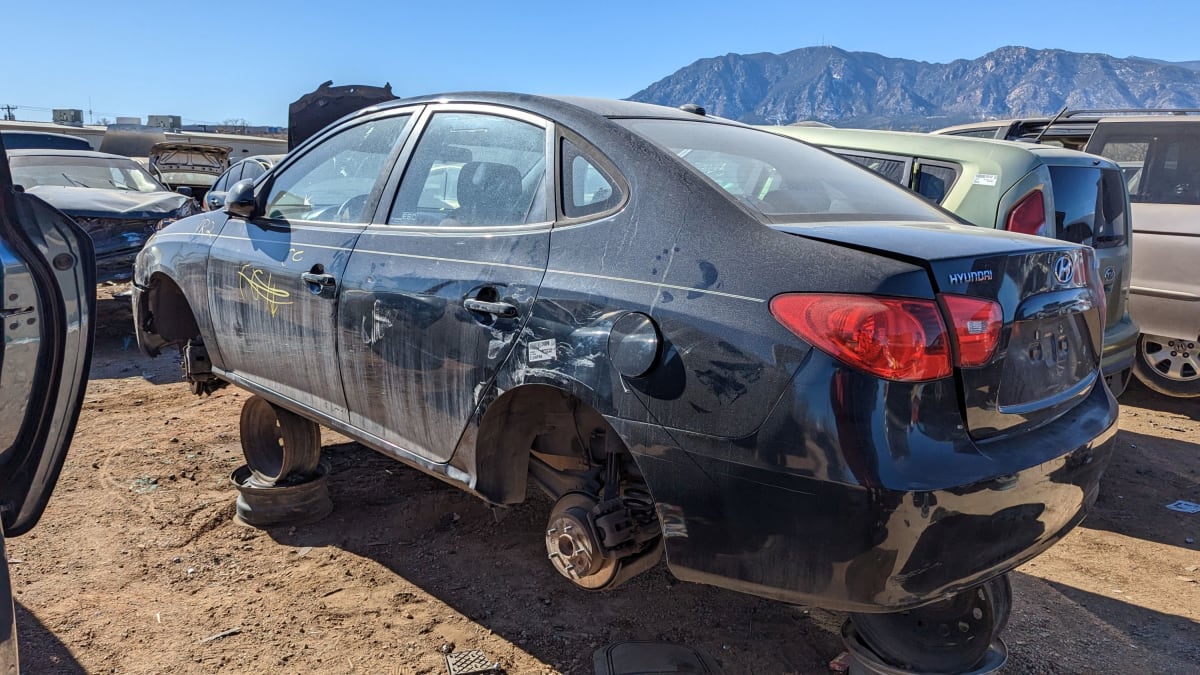
I’ve managed to find some unexpected 21st-century cars with manual transmissions in boneyards, including a Saturn Vue, a Honda Insight and a PT Cruiser.
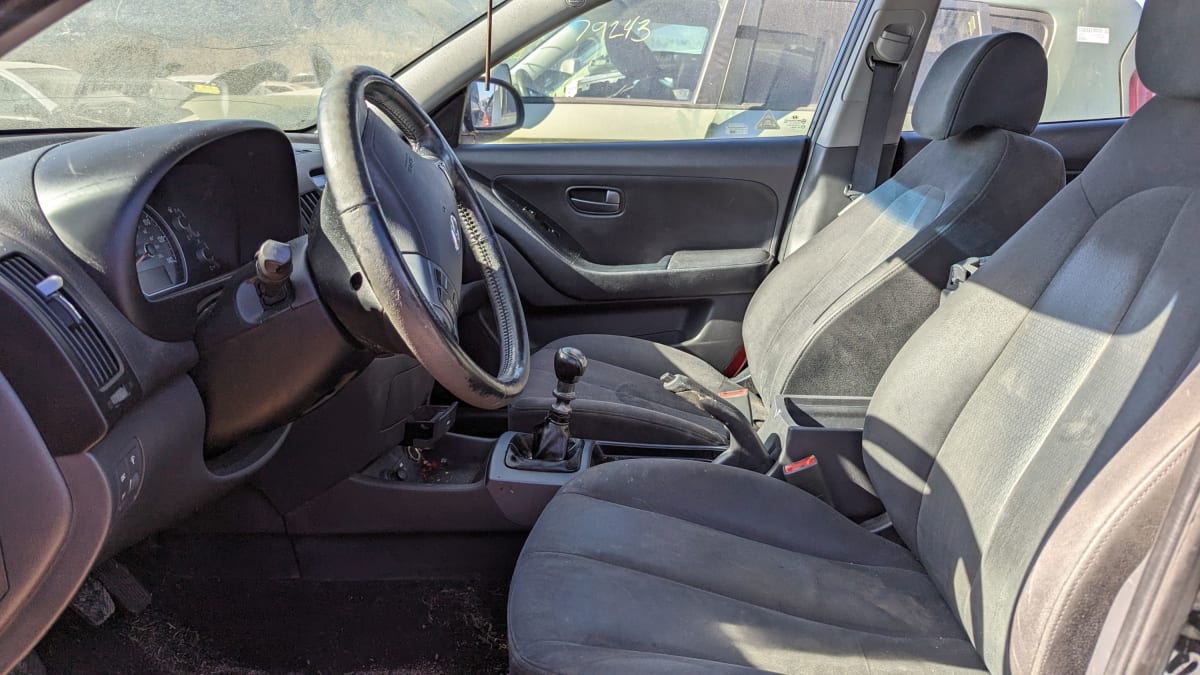
To get air conditioning in a 2009 Elantra GLS (which this car has), you had to shell out an additional $1,750 or $2,650 ($2,480 or $3,755 today) for an equipment package including many other upgrades.
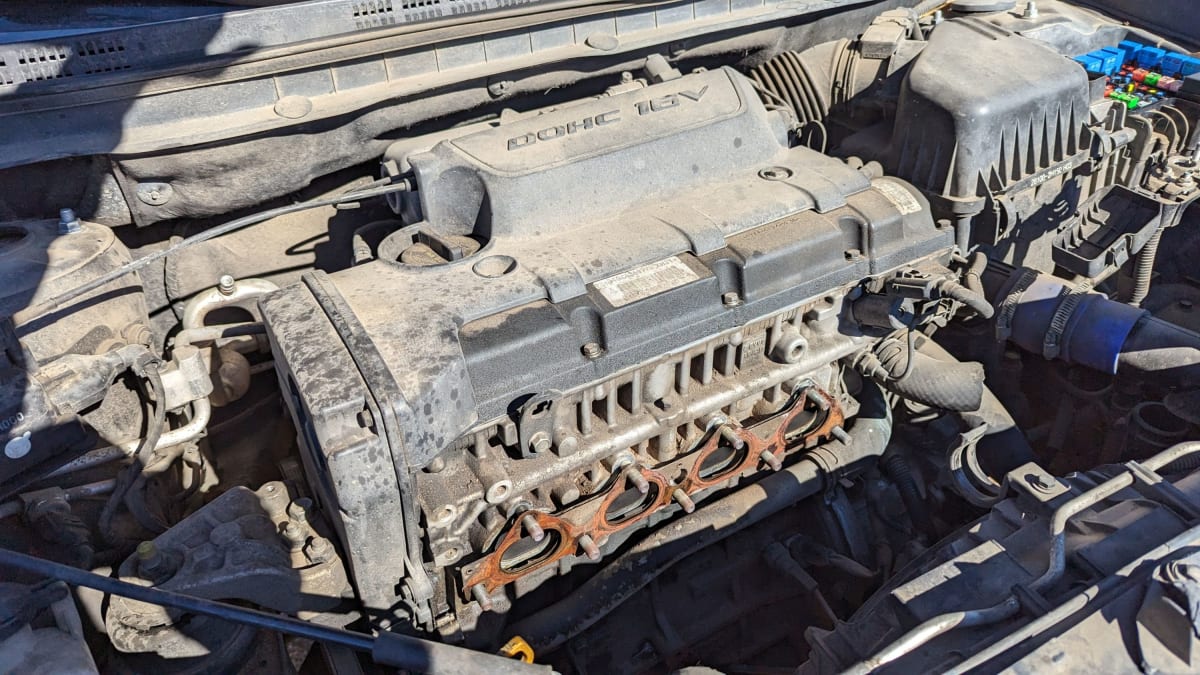
The engine is a 2.0-liter four with 138 horsepower and 136 pound-feet.
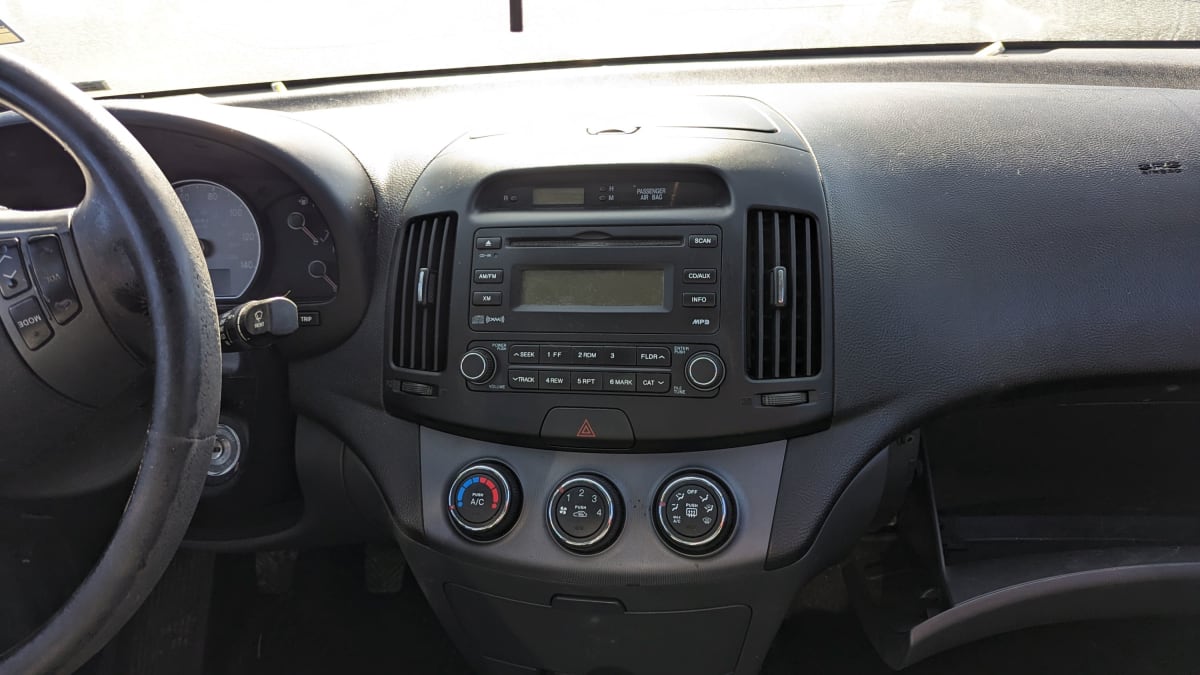
If you’re building a car-parts boombox for your garage — and you should — then this radio is my personal top choice for the heart of such a rig. Unlike most other automotive audio systems of its era, the head units found in late-2000s Hyundais and Kias have AUX input jacks (a must if you wish to add a cheap Bluetooth adapter with minimal hassle) and they don’t require a CAN Bus signal to function.
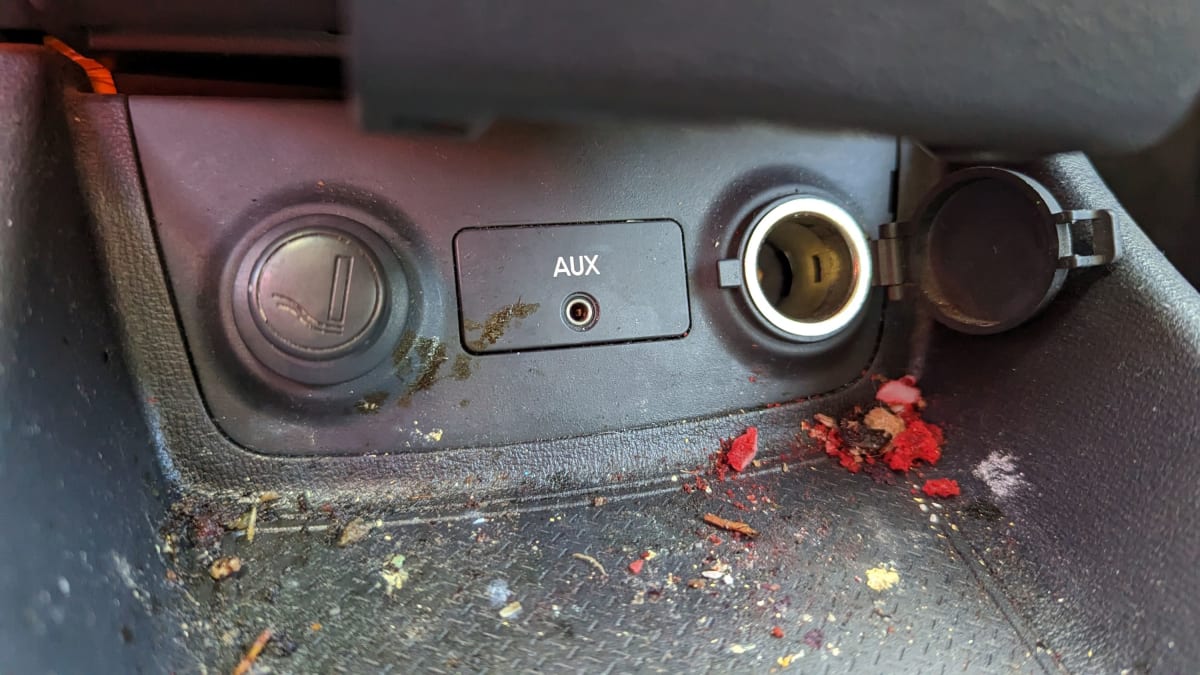
The only other AUX-friendly/non-CAN car radios that are easy to find in junkyards right now are in some mid-to-late-2000s Suzukis that have non-Delco radios. You see, there are valuable lessons in every Junkyard Gem!
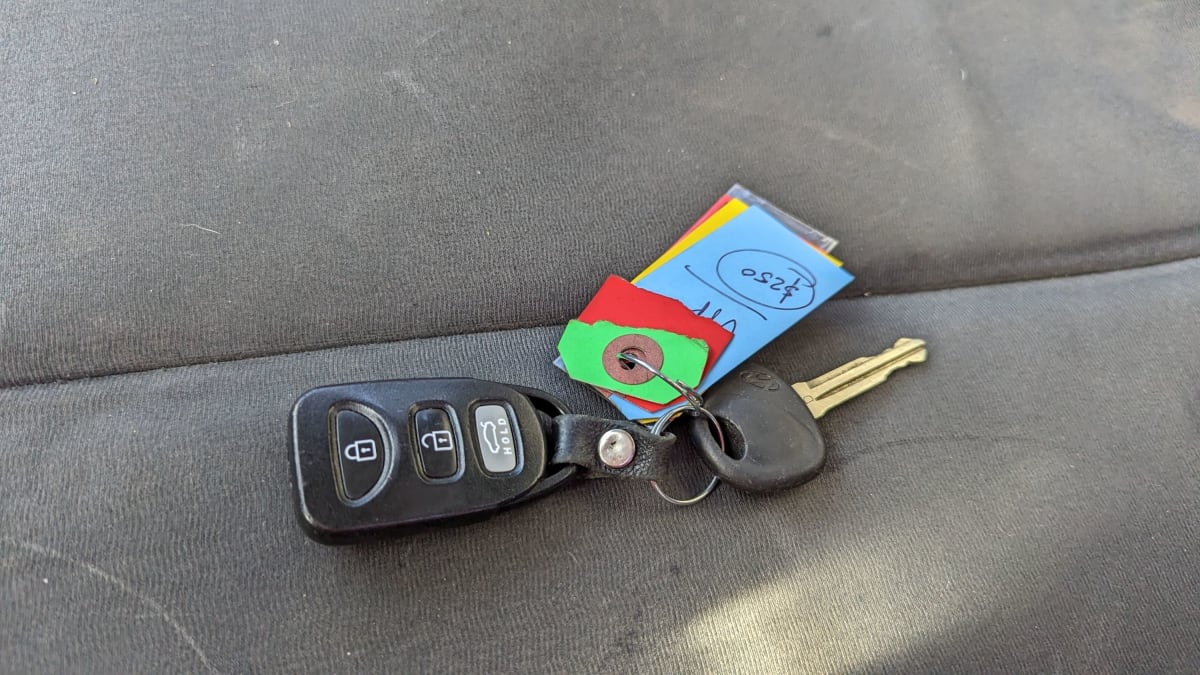
This car is one of the Hyundais vulnerable to the recent rash in thefts, but it didn’t get discarded at age 14 due to theft-related destruction. More likely, it was a dealership trade-in that had some expensive mechanical ailment that wasn’t worth fixing on a car that most prospective buyers are incapable of driving.
Hyundai retailers were dealing in 2009, in large part because the company took full advantage of those sweet Cash For Clunkers dollars.







